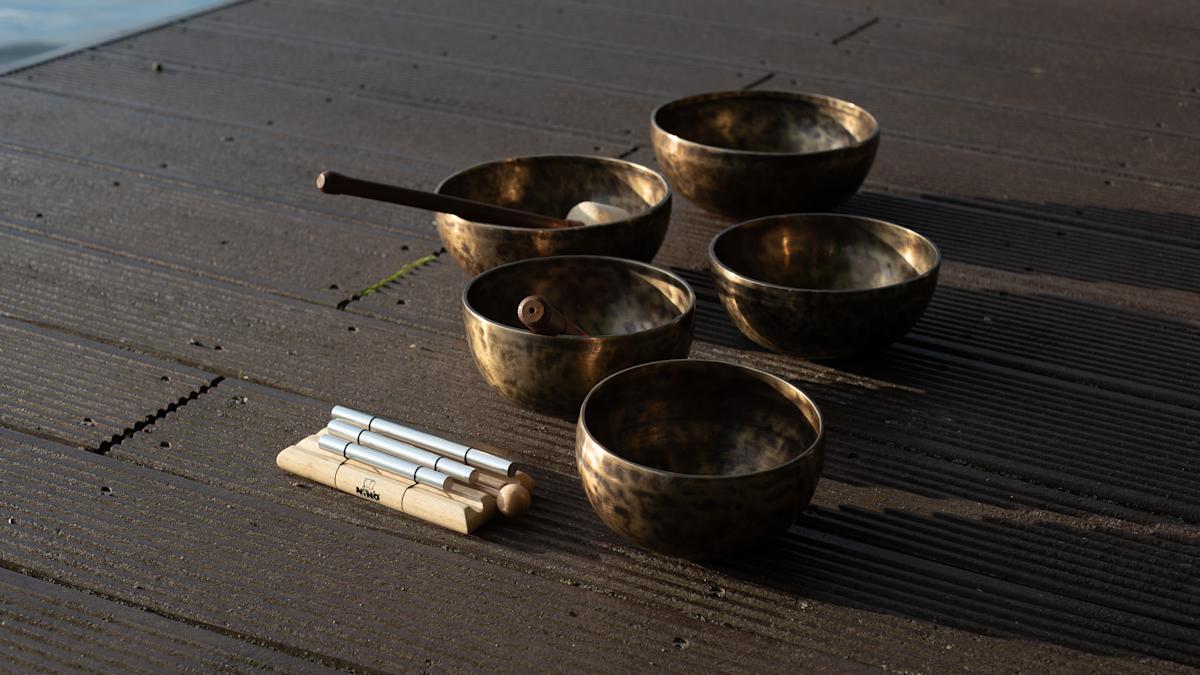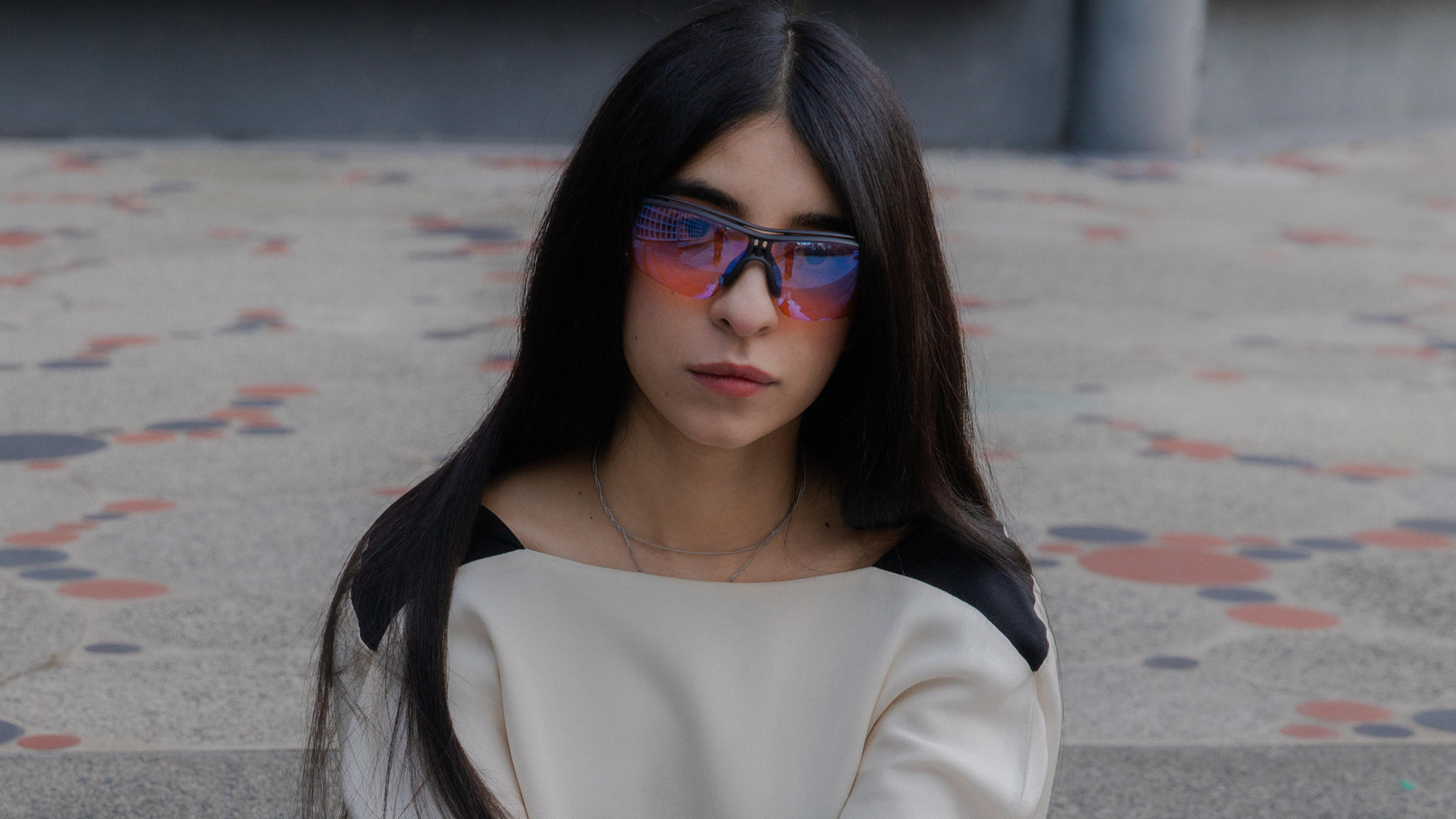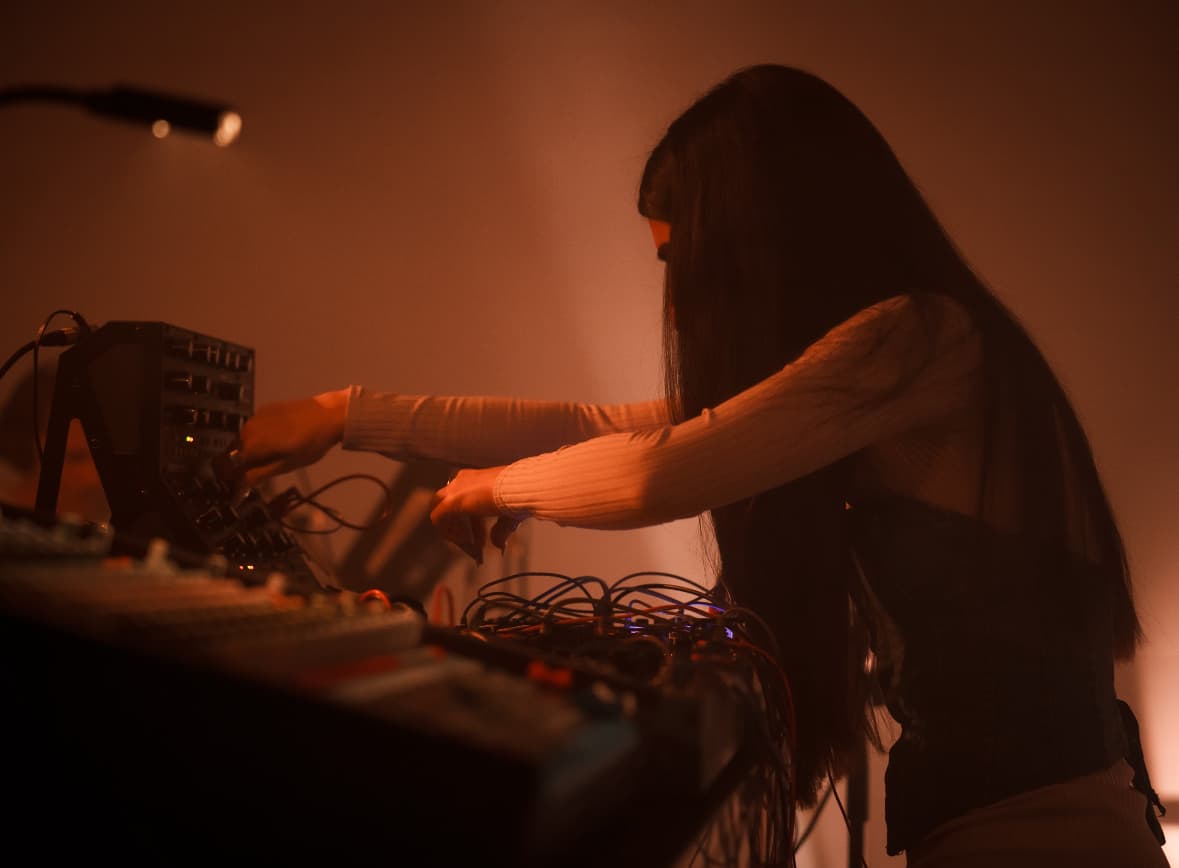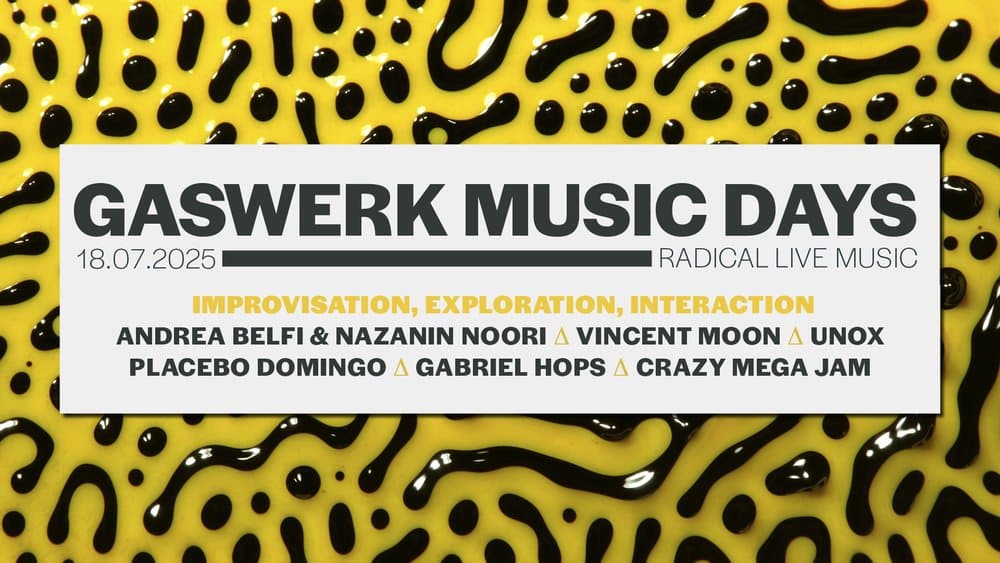
Soundbath Session - Fundraiser
Ambient soundscapes and healing tones on August 13th
Loading

Talking sound and process ahead of Gaswerk Music Days.
By Héloïse Leclercq
As Gaswerk Music Days 2025 continues this week at Gaswerksiedlung studio complex in Rummelsburg, we spoke with Berlin-based multidisciplinary artist and director Nazanin Noori. With a background in sciences, Noori’s practice moves across composition, installation, lecture performance and text, manipulating sound as a way of thinking and feeling - her AMBIENT HARDCORE radio shows on Refuge are a good introduction. Primarily working within the ambient hardcore and doom electronics realms, her compositions explore the intersections of space and post-dramatic poetry.
Together with drummer and collaborator Andrea Belfi, she is preparing a set that leans into both tension and texture. We spoke about shared presence and what it means to listen in a time that asks for it.
This year’s Gaswerk lineup is bold and conceptual. What made you want to join? We are excited to be part of a lineup with so many strong artists that have a very distinct sound each. The curation has done an excellent job. The last time Andrea and I played together in Berlin was at Martin Gropius Bau, in their big hall that is a space with an architecture that really shaped how we approached the set. It was a memorable experience for both of us, as we played very delicately. Now playing in Berlin as part of Gaswerk Music Days feels meaningful in a different way, as the setup allows us to approach the music much more physically and indeed boldly, which brings a completely different context and therefore energy to the sound.
You’re performing with Andrea Belfi. How did this collaboration start, and how do your sounds meet each other?
I met Andrea almost two years ago during an artist residency at Callie’s in Berlin. Andrea was already a permanent resident, I was there temporarily. By now Andrea has also become my partner. We produce, compose and perform together. Andrea also composes for the plays that I direct. Our most recent production, I PITY THE GARDEN, was staged at the Studio Я, at Maxim Gorki Theater in Berlin. Our next piece, DEATH FUGE, will premiere there in October. In this specific set at Gaswerk Music Days Andrea will play the drums and I will perform the vocals and electronics.
Speaking of that, what kind of tone are you shaping for this set?
All things AMBIENT HARDCORE. Meaning everything happens at the same time.
Your work carries displacement, and grief. How do those feelings move through your music?
It feels almost impossible to produce works that don't carry those elements. When I think about political realities, meaning how they solidify into history, how they shape public opinion, how they are expressed, it often starts with a word. But what I try to bring to the table is something that goes beyond words. I work with sound as a way to respond to the world, especially to the parts of it that are difficult to articulate. I try to translate that tension, that grief, into something felt, not just heard. I see sound as a way of thinking or as a way of translating a state of mind that’s more complex than language or the logic we usually use to make sense of things. Within any discourse built on words, there's a limit. Words tend to simplify, unless they’re poetic, but that’s probably another conversation. What I try to do is to tell a sound story of what is felt. Something that comes from under the table. There’s a complexity in sound that resists simplification, and for me, that’s where an emotional narrative can unfold. That’s also where listening becomes essential, listening as a form of presence, of holding space.
Do your live sets come from places of resistance?
Resistance is a strong word. I might aim to resist, but I’m not sure I can say I succeed in doing so. I would rather call it, as Pauline Oliveros did, Sonic Meditation. A practice of deep listening, of being present with the present and sound and what it carries. I simply think that in a world of empathy, there must be listening. And in a world of empathy and listening, there may be justice.
What’s a sound you heard recently that is stuck in your mind?
It’s not a new sound to me, but I’ve been listening a lot to the works of Kurdish tanbur master Seyed Khalil Alinezhad lately. His music is deeply spiritual and, for me, healing. It helps me especially when I feel myself starting to dissociate. Also, I feel a little obsessed with it. You move between artistic mediums. What ties all those forms together for you? Having the opportunity to move between different branches of the arts allows me to think more freely within each field, without being limited by the specific expectations or restrictions they often carry. I know it’s a real privilege to be able to navigate across disciplines, and I have to say that the diversity in my work is a constant source of co-inspiration.
Also, I get to work with a wide range of people, each with their own stories, perspective and personality, which continues to inspire my thinking. By now, I must say, I cannot even imagine not working within these many fields at the same time. How has your experience of sound evolved through Refuge Worldwide radio shows? Having a broad taste in music and maybe a slightly odd perspective on pop culture, or what I think should be pop culture but mostly lives in the niche, I was genuinely afraid I’d stop listening to new music when I turned 30. But then came Refuge Worldwide. I met George and Richard during the early days of planning the platform, and I knew right away it would become something special. Refuge launched at a time when everything felt like it was on hold, and yet it found its voice and audience. They’ve built a space that gives visibility to communities, embraces diversity and does so with care and inclusivity. Chapeau.
What conversations are you hoping to open with this Gaswerk performance?
I don’t think I have any specific expectations. I just hope that we can share a moment of insight, and that the audience allows themselves to be present with the music. As the set is made up of different episodes, my hope is that people can move through those shifts with us in a way that invites feeling and feeling differently too. If the audience is able to let themselves stay with the music, even as it changes and turns, then maybe we can create a space for something to happen. Not in a big or obvious way, but within. Ultimately, it’s about trust.

What new projects or directions are you leaning into now? I tend to work on multiple projects at once. Right now, I’m preparing rehearsals for DEATH FUGE, a spoken word opera based on texts by Paul Celan, which I’m directing. The piece will premiere at the Maxim Gorki Theatre in October 2025. It requires a lot of preparation, so I’m glad to be developing it further during my upcoming artist residency at Rupert in Vilnius, Lithuania, before rehearsals begin in Berlin.
This year, I’m also composing music for a theatre production in Amed, Kurdistan, directed by Mizgin Bilmen. The piece is being developed with local actors and navigates around questions of war and peace, drawing from Frantz Fanon’s The Wretched of the Earth and Georg Büchner’s Danton’s Death. I’ll also be composing music for Murat Dikenci’s new staging of The Legend of Paul and Paula, which will also premiere at the Maxim Gorki Theatre in December.
The more, the more. Full program of Gaswerk Music Days is available here. Tickets available here.

Header photo by Diana Pfammatter. Visual by Cosmodernism.